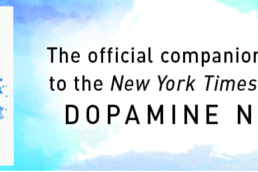The derisory term “moral panic” is a form of emotional blackmail used for years by multibillion dollar industries and their lackeys – think Big Tobacco, Big Tech and especially Big Porn – to quell discussion about their harmful products. In this guest blog from technology expert John Carr OBE, we learn about some of the tactics used to keep the industries’ profits high and our interference low. It’s time to waken up and take back control. See original blog here.
“When you hear a wolf howl…
I want to speak in defence of “moral panics”.
It’s an expression being bandied about a lot at the moment as more and more people start talking about “banning children” from owning mobile phones. See the recent report by the UK’s House of Commons Education Select Committee.
We ought to be clearer we are not really talking about phones as such. It is the social media and messaging Apps on them that are causing the trouble.
What is a “moral panic” anyway?
In my neck of the woods a moral panic is people, typically parents, saying there is stuff going on that looks scary and worrying in relation to their children’s lives and happiness. Children themselves are very often saying exactly or nearly exactly the same thing as their parents.
Nobody should sneer at a worried parent or a worried child. All too often, rather condescendingly, snooty individuals and industry schills will seek to minimise or dismiss the sentiments behind the panic. They say stuff like “there is no evidence” to justify the anxiety or view being expressed. That’s pretty close to saying “you don’t know what you are talking about” but that’s a bit too obviously rude.
Big Tech is allowed to put out a new App then shelter behind s230 or its equivalent while we have to scrabble around to prove they are getting it wrong.
Asking for evidence is always the industry’s first blocking tactic. It introduces delay. Delay is good. Key players in the industry like the status quo. It is what made them rich. They want to hang on to as much of it as possible for as long as possible.
My first experience of this was in 1999 following one of the UK’s first grooming cases (Patrick Green). We said it could be a harbinger. “Nonsense. Scaremongering. Where’s the evidence? A one off”, came the strident reply. A working party was established. In 2001 the working party published “Chat Wise. Street Wise.” Read its recommendations and weep.
Abusing our trusting nature or do I mean “gullibility”?
It’s hard to be against the collection and analysis of evidence. On the contrary we need research, we need reliable evidence, the better to understand any apparent problems and the better to target resources to deal with them.
But over those same years, quelle surprise it turned out there was something to be concerned about all along. When the evidence was finally and incontrovertably in, people’s gut fears, perceptions, instincts and apprehensions turned out to have something real underpinning them after all.
Moreover we now know some tech businesses all along knew what was actually happening. They supressed or denied the evidence. Like Big Tobacco and gambling before them, Big Tech found people and ways to keep the top spinning. It’s amazing what money can do.
Our lack of resources, our trusting natures or gullibility were manipulated and abused. Too many children have paid too high a price.
The wolf
I can’t remember or find who said it first but “If you are in a forest and you hear a wolf howl, even if you can’t see a wolf, it would be wise to assume a wolf is out there somewhere and act accordingly”.
I am not arguing everything should be upended on the basis of a single bad or unfortunate incident with an App but we should not be so quick to dismiss those who do demand an immediate response. In lots of industries in the consumer space “product recalls” are often made based on one instance of something having gone wrong.
No more bogus analogies
So please, no more utterly bogus comparisons about, for example, how when video recorders appeared there was a huge moral panic and it led nowhere. There was no mass extinction of children.
Tik Tok, Snapchat and the like are not analogous to video recorders. They are a whole order of magnitude greater in their impact.
Whose side are we on?
Are we, children’s advocates, to be placed in the position of appearing to side with industry, arguing children should be allowed into spaces which, historically, have created multiple dangers to kids?
It’s no use us saying “Ah yes but we want those spaces to be safer and better than they are at the moment”. We know they aren’t as safe as they could be and should be and may not be for quite some time.
The requirements of “Safety By Design” laws, in the UK the Online Safety ACt 2023 and related regulations, may yet take a while to kick in across the broad spread of digital tech. Industry-funded bodies such as “NetChoice” are anyway contesting them. Did I mention delay means money to Big Tech? Janus is alive and well and living in California.
We should not be saying to parents, in effect, “chill, don’t be a fuddy duddy” and, by implication at least, telling them to get over it and give their kids smartphones but maybe devote half their waking hours to ensuring their children are using their phones safely.
Let’s hear it for the precautionary principle and above all let’s not get trapped into being cheerleaders for algorithmic arrogance and negligence.
Will a ban work or be a good thing? Probably not. But that’s not entirely the point.”
If you want to know about tactics to counter Big Tech and Big Porn’s influence contact us and look at materials on our website. To understand why moral panic is justified, see our blogs Pornography Industry’s Disinformation Campaign, Part One and Pornography Industry’s Disinformation Campaign, Part Two.




